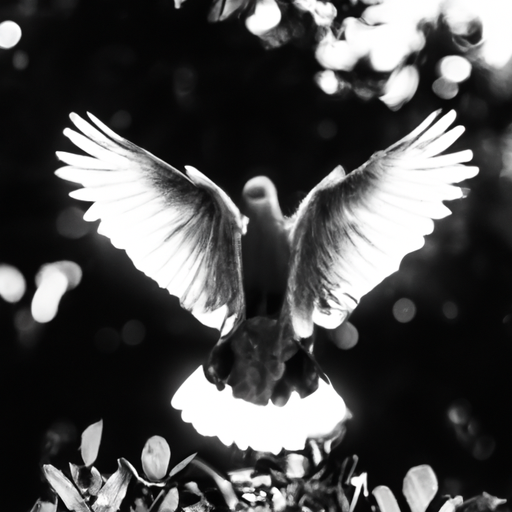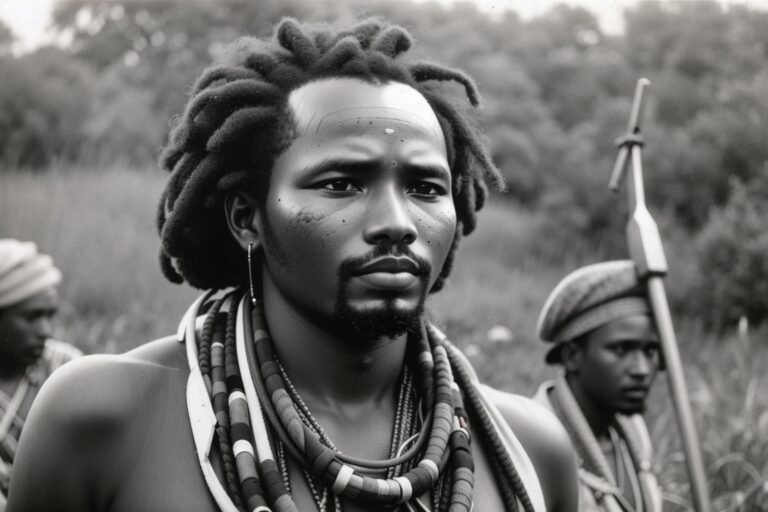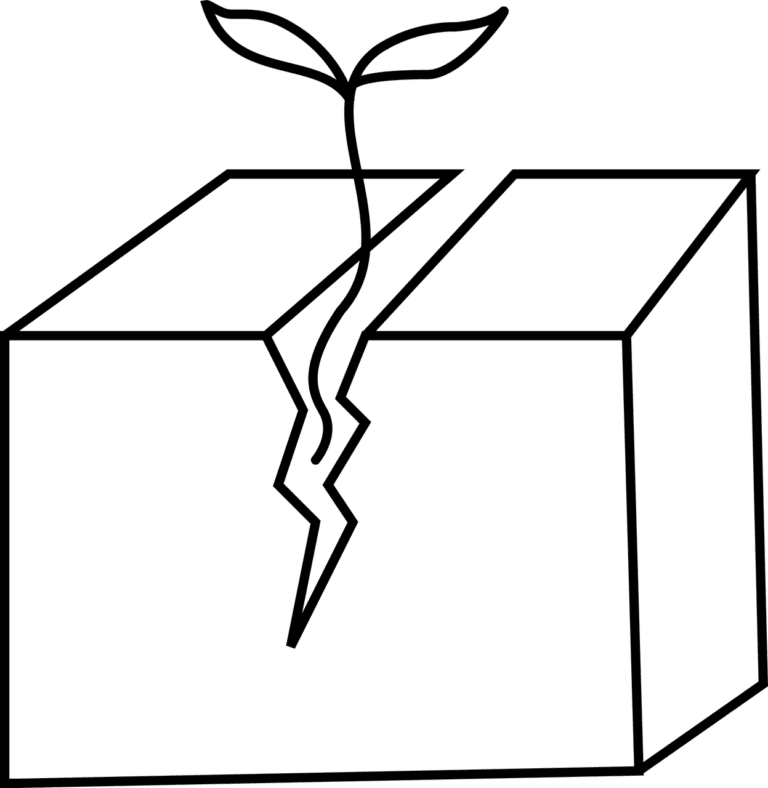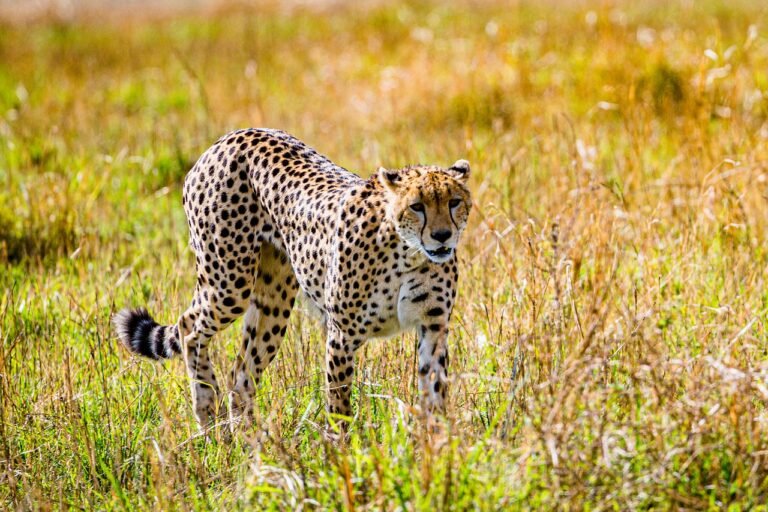How Is Wildlife Poaching Addressed In Kenya?
In Kenya, the issue of wildlife poaching is a pressing concern that requires effective measures to be addressed. From the vast savannahs of the Maasai Mara to the lush landscapes of Tsavo National Park, Kenya is home to an incredible array of diverse wildlife. However, the illegal hunting and trade of these animals pose grave threats to their existence. In this article, we will explore the strategies and initiatives employed by Kenya to combat wildlife poaching and safeguard its precious wildlife heritage for future generations. Join us on this journey as we delve into the fascinating world of wildlife conservation in Kenya!
Legislation and Policies
Creation of Wildlife Conservation and Management Act
In order to combat wildlife poaching and protect the country’s rich biodiversity, Kenya implemented the Wildlife Conservation and Management Act. This legislation provides a comprehensive legal framework for the conservation and sustainable management of wildlife. It includes provisions for the protection of endangered species, the regulation of wildlife trade, and the establishment of penalties for wildlife crimes.
Role of Kenya Wildlife Service (KWS)
The Kenya Wildlife Service (KWS) plays a crucial role in the conservation efforts against wildlife poaching. Acting as the principal agency for wildlife conservation and management, KWS is responsible for enforcing wildlife laws, protecting Kenya’s national parks and reserves, and managing wildlife resources. They work tirelessly to combat wildlife poaching, monitor wildlife populations, and promote biodiversity conservation.
Illegal Wildlife Trade Policy
Recognizing the devastating impact of illegal wildlife trade, Kenya has implemented a stringent policy to address this pressing issue. The country has adopted a zero-tolerance approach towards illegal wildlife trade, aiming to disrupt criminal networks involved in trafficking wildlife products. This policy includes measures to enhance border security, strengthen law enforcement efforts, and increase collaboration with international organizations.
Collaboration with International Organizations
Recognizing the global nature of wildlife poaching, Kenya actively collaborates with international organizations in its conservation efforts. The country works closely with INTERPOL and the Convention on International Trade in Endangered Species of Wild Fauna and Flora (CITES) to combat wildlife trafficking at an international level. Through these partnerships, Kenya receives valuable support and expertise in areas such as intelligence sharing and capacity building.
Protected Areas and Conservation Programs
National Parks and Reserves
Kenya boasts a network of national parks and reserves that serve as valuable sanctuaries for its diverse wildlife species. These protected areas, such as the iconic Maasai Mara and Amboseli National Parks, provide crucial habitats for endangered species and serve as popular tourist destinations. By preserving these areas and effectively managing them, Kenya ensures the long-term survival of its wildlife populations.
Conservancies and Community-Based Conservation
In addition to national parks and reserves, Kenya has embraced the concept of conservancies and community-based conservation. These initiatives involve empowering local communities to take an active role in conservation efforts. By involving residents in wildlife management and sharing the benefits of wildlife tourism, Kenya promotes sustainable practices while simultaneously providing socio-economic opportunities for local communities.
Anti-Poaching Units and Rangers
Kenya recognizes the importance of robust anti-poaching measures in protecting its wildlife. The country has established specialized anti-poaching units and ranger teams tasked with patrolling protected areas and responding to wildlife crime incidents. These units play a vital role in deterring poachers, dismantling illegal networks, and ensuring the safety of both wildlife and park visitors.
Education and Awareness Programs
To address the root causes of wildlife poaching, Kenya places great emphasis on education and awareness programs. These initiatives aim to educate local communities, school children, and the general public about the importance of wildlife conservation and the consequences of poaching. Through workshops, seminars, and awareness campaigns, Kenya seeks to foster a deeper understanding of the importance of wildlife and inspire a collective effort to protect it.
Enforcement and Anti-Poaching Measures
Increased Surveillance and Intelligence Gathering
One of the key strategies employed by Kenya in tackling wildlife poaching is the implementation of increased surveillance and intelligence gathering. By utilizing technological advancements and intelligence networks, authorities can closely monitor poaching activities, track the movement of illegal wildlife products, and gather crucial information to identify and apprehend poachers and smugglers.
Strengthening Law Enforcement Capacity
Building a strong and capable law enforcement apparatus is vital in combating wildlife poaching effectively. Kenya has invested in training programs for law enforcement personnel, equipping them with the necessary skills to investigate wildlife crimes and enforce wildlife laws. By strengthening the capacity of law enforcement agencies, Kenya is better equipped to respond to the evolving challenges posed by wildlife poaching.
Use of Technology and Data
Leveraging technology plays a significant role in Kenya’s efforts to address wildlife poaching. From aerial surveillance using drones to the use of geospatial data analysis, technology aids in monitoring and managing protected areas effectively. By harnessing the power of data, authorities can identify poaching hotspots, detect patterns, and develop targeted interventions to counteract illegal activities and safeguard wildlife.
Partnership with Local Communities
Recognizing the importance of community involvement, Kenya actively engages with local communities living alongside protected areas. By forging partnerships, authorities can gather valuable local knowledge on poaching activities and obtain community support in reporting wildlife crimes. This collaborative approach helps bridge the gap between conservation efforts and local communities, fostering a sense of ownership and responsibility towards wildlife protection.
International Cooperation and Partnerships
Collaboration with INTERPOL and CITES
Kenya understands the transnational nature of wildlife poaching and recognizes the need for international collaboration. The country actively cooperates with INTERPOL and CITES to combat wildlife trafficking. Through information sharing, joint operations, and capacity building initiatives, Kenya strengthens its enforcement capabilities and enhances its ability to disrupt illicit wildlife trade networks operating across borders.
Support from International NGOs
International non-governmental organizations (NGOs) play a crucial role in supporting Kenya’s conservation efforts. Organizations such as the World Wildlife Fund (WWF) and the International Union for Conservation of Nature (IUCN) provide funding, technical expertise, and resources to bolster anti-poaching measures, community engagement programs, and research initiatives. These partnerships enable Kenya to leverage external support and tap into global networks of conservation professionals.
Joint Operations with Neighboring Countries
Recognizing the regional nature of wildlife poaching, Kenya collaborates closely with neighboring countries to tackle the illegal trade in wildlife products. Joint operations, intelligence sharing, and harmonization of law enforcement efforts help disrupt cross-border smuggling routes and dismantle transnational criminal networks. Through these joint initiatives, Kenya builds stronger regional alliances and shares best practices in combating wildlife poaching.
Demand Reduction Campaigns
Addressing the demand for illegal wildlife products is an essential aspect of Kenya’s multi-faceted approach. The country engages in demand reduction campaigns to raise awareness about the devastating impact of wildlife poaching and discourage the consumption of illegal wildlife products. Through targeted messaging, education, and outreach initiatives, Kenya seeks to change consumer behavior, reduce demand, and ultimately undermine the profitability of the illegal wildlife trade.
Legal Framework and Prosecution
Strict Penalties and Fines for Wildlife Crimes
Kenya’s legal framework includes stringent penalties and fines for wildlife crimes. These punitive measures serve as a deterrent and send a clear message that wildlife poaching will not be tolerated. Offenders can face substantial jail terms and hefty fines, providing a strong incentive to discourage illegal activities and ensure the preservation of Kenya’s rich wildlife heritage.
Specialized Wildlife Crime Units
To streamline the investigation and prosecution of wildlife crimes, Kenya has established specialized wildlife crime units. These units comprise trained professionals with expertise in wildlife law enforcement and crime scene investigation. By focusing on wildlife-specific offenses, these dedicated units are better positioned to gather evidence, build strong cases, and secure convictions for high-profile poaching cases.
Prosecution of High-Profile Poaching Cases
Kenya understands the importance of prosecuting high-profile poaching cases as a means to deter potential offenders and demonstrate its commitment to combating wildlife crime. The successful prosecution of poachers and smugglers involved in the illegal trade of wildlife products sends a powerful message that wildlife poaching is a serious crime with severe consequences.
Training and Capacity Building for Judiciary
In order to ensure effective prosecution and adjudication of wildlife crimes, Kenya has invested in training and capacity building for judges, prosecutors, and other members of the judiciary. By enhancing their understanding of wildlife laws, the unique challenges of wildlife crime, and the need for strict enforcement, Kenya promotes a judicial system that can effectively handle wildlife cases and deliver justice.
Community Engagement and Empowerment
Involvement of Local Communities in Conservation
Kenya recognizes that the involvement of local communities is critical to the success of conservation efforts. Through meaningful engagement and consultation, authorities actively involve local communities in decision-making processes and empower them to take ownership of wildlife conservation initiatives. By involving communities, Kenya fosters a sense of responsibility and cooperation, recognizing that sustainable conservation is most effective when communities are fully engaged.
Alternative Livelihood Programs
To address the economic drivers of wildlife poaching, Kenya implements alternative livelihood programs aimed at providing sustainable economic opportunities for local communities. By offering training and support in fields such as ecotourism, sustainable agriculture, and craft industries, these programs provide viable alternatives to illegal activities while promoting the sustainable use of natural resources.
Sharing of Benefits from Wildlife Tourism
Recognizing the economic value of wildlife tourism, Kenya ensures that local communities have a stake in the benefits derived from this sector. Revenue-sharing schemes are implemented to ensure that communities living near protected areas receive a fair share of the proceeds from wildlife tourism. By directly benefiting from the presence of wildlife, local communities have a vested interest in their protection and conservation.
Traditional Knowledge and Practices
Kenya acknowledges the value of traditional knowledge and practices in wildlife conservation. By integrating traditional ecological wisdom into conservation strategies, Kenya leverages the expertise and experience of local communities in managing natural resources. This inclusive approach respects indigenous rights and recognizes the pivotal role that traditional knowledge plays in the preservation of biodiversity.
Awareness and Education
School Programs on Wildlife Conservation
Kenya places significant emphasis on educating the younger generation about the importance of wildlife conservation. School programs are designed to raise awareness, build a sense of environmental stewardship, and inspire a commitment to protecting wildlife. Through interactive lessons, field trips, and hands-on activities, students gain a deeper understanding of Kenya’s natural heritage and their role in its preservation.
Media Campaigns and Documentaries
Utilizing the power of media, Kenya conducts campaigns and produces captivating documentaries to raise public awareness about wildlife conservation. Through television, radio, and online platforms, these initiatives reach a broad audience, disseminating information about the consequences of wildlife poaching and the urgent need for conservation. By captivating hearts and minds, these media efforts inspire collective action and encourage behavior change.
Training Programs for Local Guides and Tour Operators
Recognizing the influential role of tour guides and operators, Kenya implements training programs to ensure they possess the knowledge and skills necessary to educate tourists about wildlife conservation. By promoting responsible and ethical tourism practices, these programs foster a greater appreciation for wildlife and reinforce the importance of engaging in sustainable tourism activities that support conservation efforts.
Educational Initiatives Targeting Urban Areas
While rural communities often have a closer connection to wildlife, Kenya recognizes the importance of engaging urban areas in conservation efforts. Educational initiatives are targeted towards urban populations, raising awareness about wildlife conservation and the impact of urbanization on habitat loss. By fostering a sense of responsibility and empathy among urban dwellers, Kenya aims to promote a united front in the fight against wildlife poaching.
Research and Monitoring
Scientific Studies on Wildlife Populations
Undertaking scientific studies on wildlife populations is essential for informed conservation decision-making. Kenya invests in research projects that study various aspects of wildlife populations, including population dynamics, migration patterns, and genetic diversity. Such studies provide critical data that guide conservation efforts, allowing authorities to develop targeted interventions and implement effective management strategies.
Mapping and Tracking of Poaching Hotspots
Kenya utilizes the power of geospatial technology to map and track poaching hotspots. By analyzing data on a spatial level, authorities can identify areas with high levels of poaching activity and deploy resources accordingly. This targeted approach enables more effective anti-poaching efforts, ensuring that limited resources are deployed where they are most needed.
Surveys on Illegal Wildlife Trade
To gain a better understanding of the scope and nature of illegal wildlife trade, Kenya conducts surveys to gather up-to-date information on the dynamics of this illicit activity. These surveys provide valuable insights into the routes, markets, and key players involved in the illegal trade. Armed with this knowledge, authorities can develop strategies to disrupt the trade networks and interdict illegal wildlife products.
Collaboration with Universities and Research Institutions
Kenya recognizes the value of collaboration with universities and research institutions in advancing scientific knowledge and developing effective conservation strategies. Partnerships with academic institutions enable the exchange of expertise, resources, and research findings. By working together, Kenya and these institutions contribute to the global body of knowledge on wildlife conservation and develop innovative solutions to address the challenges facing wildlife.
Conservation Partnerships with Private Sector
Corporate Social Responsibility Initiatives
The private sector plays a vital role in Kenya’s wildlife conservation efforts through corporate social responsibility initiatives. Companies across various industries contribute financially and through in-kind support to conservation projects and anti-poaching efforts. By aligning business interests with conservation goals, these partnerships promote sustainable practices and contribute to the preservation of Kenya’s natural heritage.
Investment in Wildlife Protection and Rehabilitation
Private sector entities invest in wildlife protection and rehabilitation projects to support conservation efforts. These investments may involve the establishment or support of sanctuaries, funding for anti-poaching units, or contributions to wildlife rehabilitation centers. Through these initiatives, private sector partners actively contribute to the well-being and protection of Kenya’s wildlife.
Collaboration with Ecotourism Operators
Collaborating with ecotourism operators is an essential component of Kenya’s conservation partnerships with the private sector. Responsible ecotourism operators align their business practices with sustainability principles and actively support wildlife conservation initiatives. By channeling tourism revenue into conservation efforts, these partnerships create a mutually beneficial relationship that promotes the preservation of Kenya’s natural resources.
Development of Wildlife Sanctuaries
Kenya encourages the establishment and development of wildlife sanctuaries through partnerships with the private sector. These sanctuaries provide safe havens for orphaned, injured, or endangered wildlife, allowing for their rehabilitation and eventual release back into the wild. By working together, Kenya and private sector partners expand protected areas and contribute to the conservation and welfare of Kenya’s wildlife.
Challenges and Future Strategies
Sophisticated Poaching Techniques
One of the ongoing challenges faced by Kenya is the adoption of increasingly sophisticated poaching techniques by criminal networks. Poachers often utilize advanced technology, including night vision goggles and automatic weapons, making their activities harder to detect and combat. To address this challenge, Kenya continues to invest in training and equipment to ensure the authorities stay one step ahead of poachers.
Corruption and Bribery
Corruption and bribery pose significant challenges to wildlife poaching enforcement efforts in Kenya. Some individuals within the law enforcement and judicial system may be susceptible to bribery, compromising investigations and hindering successful prosecutions. Kenya recognizes the need to address corruption at all levels and has implemented measures to enhance transparency, accountability, and integrity within its institutions.
Rapid Urbanization and Habitat Loss
As Kenya’s population grows and urban areas expand, habitat loss becomes a significant threat to wildlife conservation. Rapid urbanization leads to the fragmentation and destruction of natural habitats, displacing wildlife populations and increasing human-wildlife conflict. Kenya is working to strike a balance between development and conservation, implementing effective land-use planning strategies and promoting sustainable urbanization practices.
International Demand for Illegal Wildlife Products
The demand for illegal wildlife products remains a significant driver of wildlife poaching in Kenya. The lucrative global market for items such as ivory, rhino horn, and exotic animal parts fuels poaching activities, putting immense pressure on wildlife populations. Kenya recognizes the need for continued collaboration with international partners and the implementation of demand reduction campaigns to address this critical issue effectively.
In conclusion, Kenya employs a multi-faceted approach to address wildlife poaching, recognizing the importance of legislation, protected areas, enforcement measures, international cooperation, community engagement, awareness and education, research and monitoring, partnerships with the private sector, and addressing ongoing challenges. Through these strategies, Kenya strives to protect its rich biodiversity, conserve its wildlife populations, and ensure a sustainable future for generations to come.







